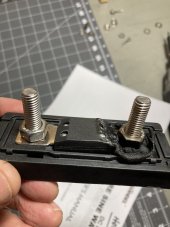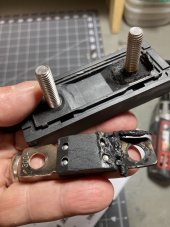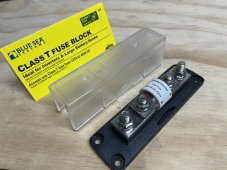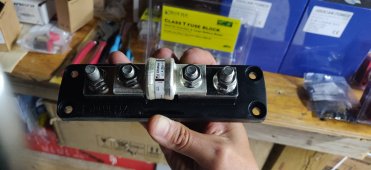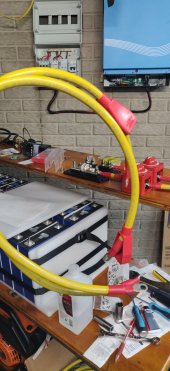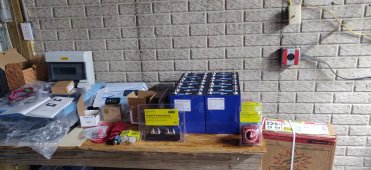UGT
New Member
My system has been up and running perfect for 2 months, no problems. This morning when throwing a switch on the transfer box that had my under the sink hot water heater in line the 300A slow acting fuse melted and caught the 2/0 wire insulation and the fuse holder on fire. I heard the inverter alarm and smelled smoke. Fortunately I was there to se a small flame coming from the fuse holder, turned off battery switch. If I hadn't been home and caught this could have been very bad. I thought the fuse was supposed to blow so the wire wouldn't melt or catch fire? Why didn't that happen? This wasn't the first time to use the hot water heater and previously there was no problem using it. Thanks for your help. George in Austin